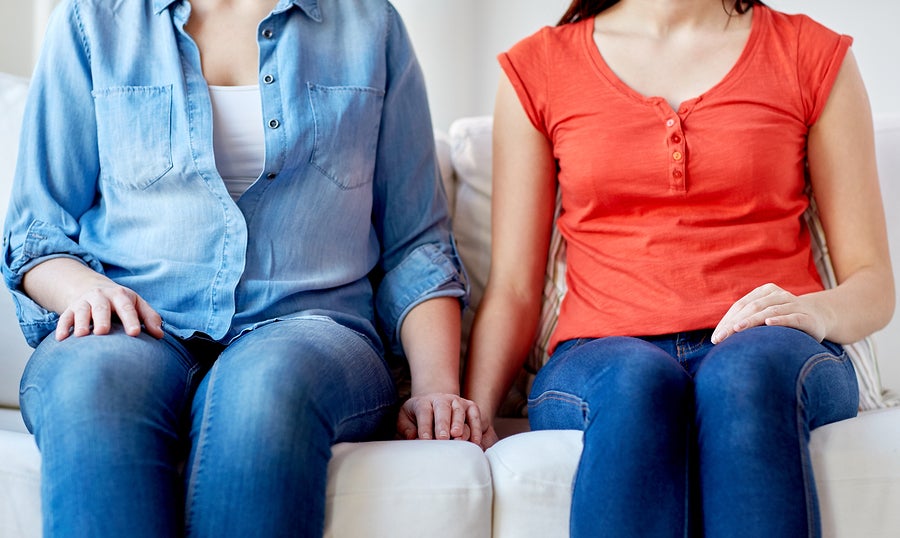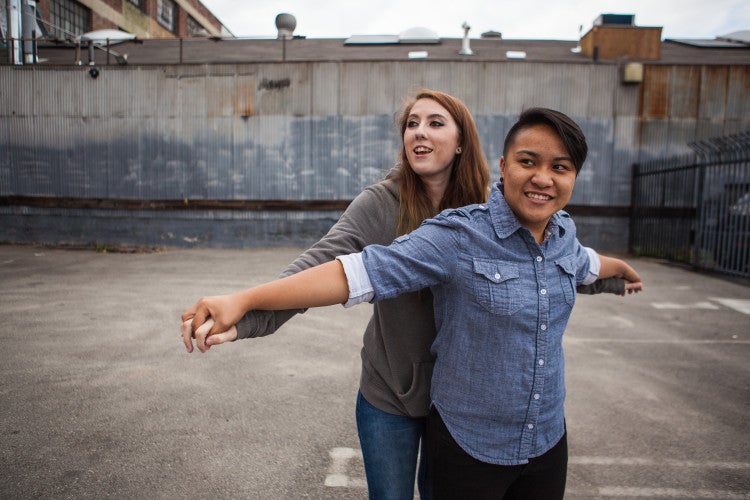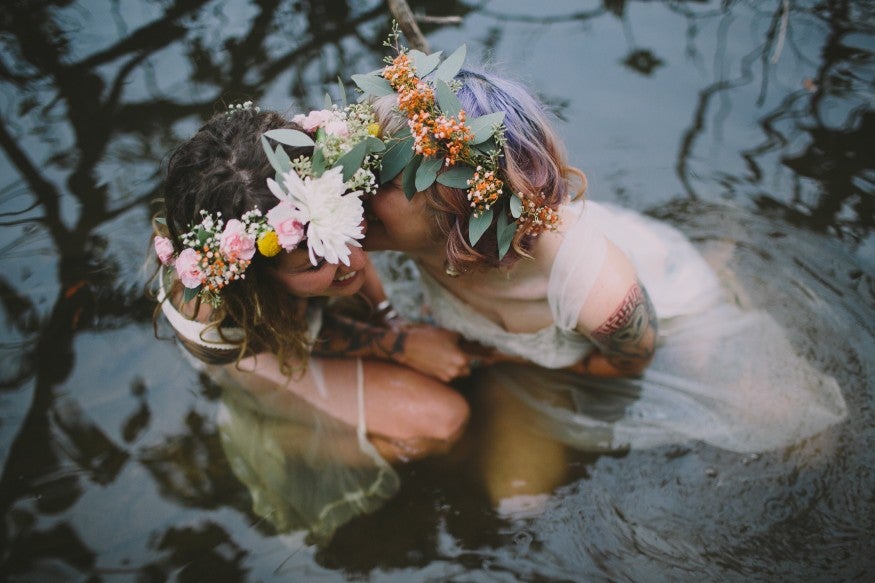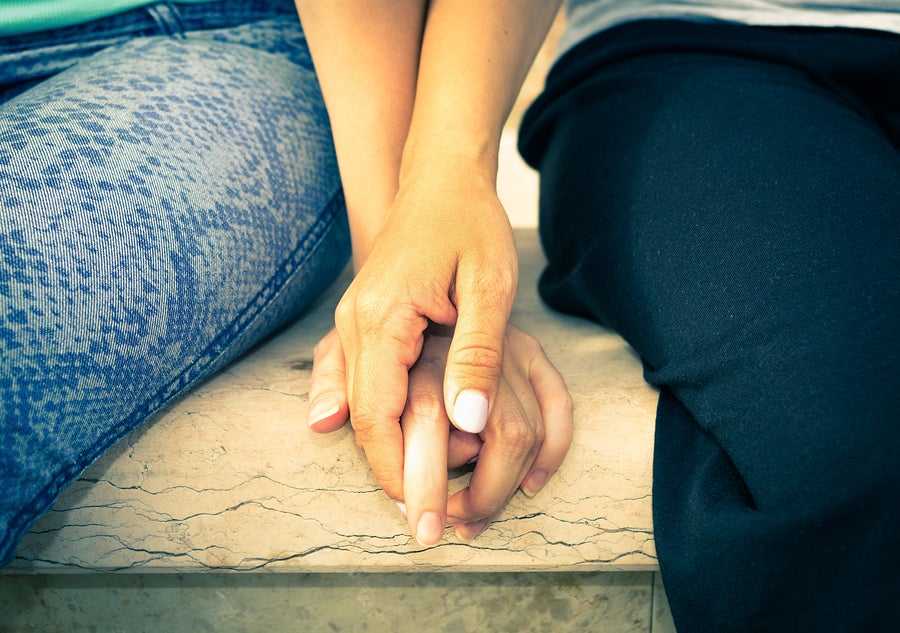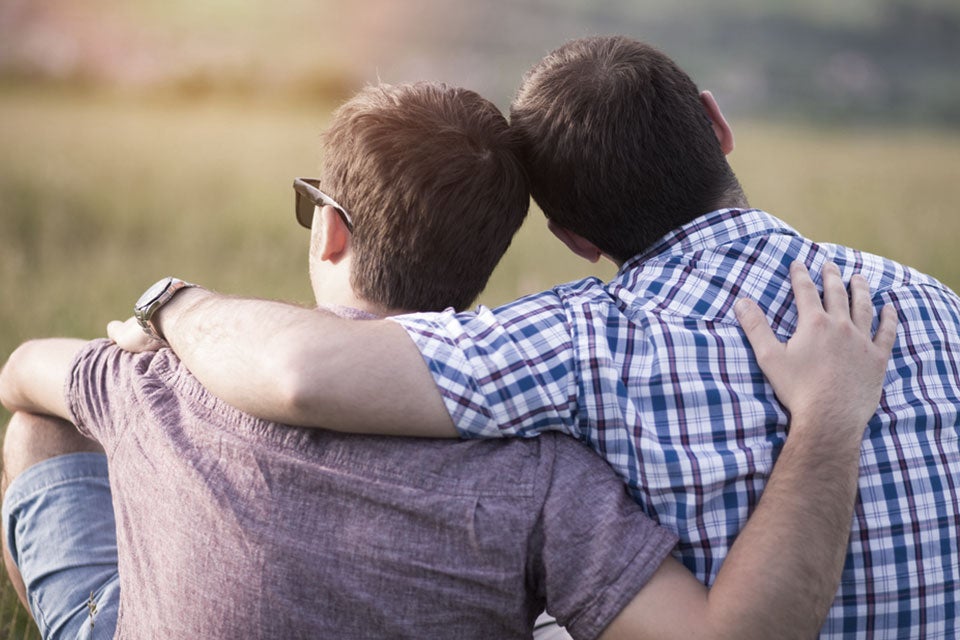8 Things Gay Dating and Straight Dating Have In Common
LGBTQ Community
Although gay dating and lesbian dating are unique experiences, queer relationships themselves have a lot more commonalities with straight couplings than they have differences. So to calm the confusion and bust some pretty common dating myths, we decided to take a look at all the ways gay dating is just like straight dating.
Here are just a few:
1). First Dates Are Terrifying
What if they look nothing like their OkCupid photos? What if they start a fight at the bar? What if the first thing out of their mouth is a belch or racist joke? There are a million worst-case scenarios that will run through you head before a first date, and those anxieties don’t just disappear because your date isn’t straight.
A misconception that many straight people have is that gay dating is somehow easier because you and your plus one have some common ground.
But just because you may share the same bathroom doesn’t mean you share anything else, like political views or a love of super-spicy thai food. Gay or straight, first dates are pretty scary, and if they begin with gay online dating sites, sometimes they can be even scarier. You just have to dive in and hope the waters aren’t too rough. And hey, if it’s a complete and total failure you’ll at least come away with some horror stories to tell your friends!
2). Your Straight or Gay Dating Pool Is as Small as You Make It
Hang out with gay singles long enough and you’ll definitely hear them complain about the size of their local dating pool. Although people are becoming more and more open about sexuality, the LGBTQ community itself can still seem rather small, and the number of eligible daters inside it even smaller. As a result, you might find yourself dating your ex’s ex, or your best friend’s ex, or that guy pretty much everyone has dated at least once.
But here’s the thing — with straight dating, gay dating, lesbian dating or any other romantic pairing, your pool of prospective partners is only as small as you make it.
Instead of chatting up someone at a party full of people you know, try joining a hiking group or going to a mixer for young professionals. You can even check out sites like Meetup.com to discover groups of people who share your interests, whether you’re into table tennis or tantric yoga. Challenge yourself to get out there and meet new people! Until you do, the only person you should be blaming for that tiny dating pool is yourself.
Want more ideas? Consider these 8 unique ways to meet gay men.
3). Meeting the Family Can Be Awkward or Amazing
Many people might assume that one of the most difficult parts of gay dating or lesbian dating is bringing your partner home to meet your family. They’re often right.
But what they don’t realize is that it depends entirely upon your family, your partner and the strength of your relationship. If you’re dating a passionate gay rights activist and you’re bringing them home to meet a group that throws around gay slurs like they’re frisbees, clearly things won’t go well.
Even if your family is trying their best to be supportive, they might not know how, and in their well-meaning fumblings, they may insult or hurt you and your partner. And then there are abusive family members who may pose a genuine physical threat to you and the person you love.
These are real issues, but they’re not entirely unique to the gay community. There are few human experiences more universal than awkward pauses at the dinner table, and although we’d all like to believe we’re maturing and growing as a culture, many people still feel threatened by people who they don’t understand, whether their point of difference is sexual orientation, race, religion or even socio-economic status.
The point is, if your family really wants to love and support you, they will — even if they stumble along the way. If they don’t, or things get awkward, here are some tips for bringing your partner home for the holidays (or any time of year!).
4). Gay Dating Won’t Work Unless You Do
All established relationships require work, and gay dating is no exception.
Gay, straight, queer, monogamous, polyamorous, open — no matter what a relationship looks like, the people in it will have disagreements, misunderstandings and although it’s hopefully rare, fights. These rough patches will happen, and the universal mistake that couples usually make is that they fight against each other instead of against the problem itself.
Author Deborah Ward explained this issue perfectly in Psychology Today:
When couples fight, they immediately place themselves on opposite sides of the battlefield. The struggle to keep your relationship alive and to make it better then changes into a fight for victory. And this means that someone is going to win and someone is going to lose. If you want your relationship to work, you both need to be on the same side. That doesn’t mean that you always have to agree, but you have to be working toward the same goal.
If you and the person you’re dating are truly a team, then you’ll work together. If not, then you’ll work against each other. It all starts with deciding that being happy is more important than being right.
5). No One Can Teach You to Love Yourself
You may be familiar with the mantra used by Ru Paul at the end of each episode of Drag Race: “Remember, if you can’t love yourself, how the hell are you gonna love somebody else?”
It’s a powerful reminder of the importance of self love, but we’re not sure it’s entirely true. After all, how many of us know people who give unconditionally to their partners, who constantly shower friends and family with love, but who at the end of the day can’t look in the mirror and say without hesitation that they love what they see?
We think a more truthful statement might be this: that no one can teach you how to love yourself.
It’s up to you. This is something many people of all sexual orientations seem to forget. After spending decades enduring self-doubt, self-hatred and even abuse, many people in their first relationships, be they gay or straight or queer, may think that the love they’re receiving will somehow fix them, like it’s some kind of glue that can fill in the cracks from all the times they’ve been broken.
Sure, being truly loved and appreciated by a partner can go a LONG way to helping you realize that you matter and deserve to be happy, but self image and identity are extremely complex. These things are continuously built and shaped throughout your life. Dismantling a lifetime of doubt and hate and loneliness to rebuild the life you deserve will take time, and you’ll have to do most of the heavy lifting.
6). If You Want Better, You Have to Be Better
Have you ever heard the phrase “water finds its own level?” It’s a fancy way of saying that people who are in the same “league” will tend to find each other. You know, birds of a feather and all that.
Here’s why we’re bringing it up — we hear many singles, gay and straight and queer, complaining about the lack of quality singles out there.
“Why can’t I just find someone who makes 100k a year and looks like David Beckham had a baby with Ruby Rose?” they whine. “Is that too much to ask?” Well, to put it bluntly, it is. Unless, of course, you have your own helipad and moonlight as an underwear model yourself.
What we mean to say is that oftentimes singles try to find the perfect person without realizing that they’re far from perfect themselves. If you can’t find what you’re looking for, maybe it’s time to shift your priorities and stop chasing after rock-hard abs and start aiming for someone who simply treats you well instead. (In fact, here are 7 great reasons to date outside your type!)
Can’t let go of the dream? Then you should probably work harder to exhibit the same qualities you’re searching for.
7). Emotional and Physical Abuse Can Happen
This one’s not as fun to talk about, but it’s important that we do. Domestic violence itself isn’t discussed as much as it should be, but when it comes to gay dating, lesbian dating and same-sex unions, society as a whole is almost completely silent on the topic.
Perhaps many straight individuals don’t realize that even without the traditional power struggle between male and female gender roles, misunderstandings and fights can and do happen as can ongoing mental and physical abuse. In fact, studies have shown that domestic violence affects 25 percent to 75 percent of lesbian, gay and bisexual individuals.
Why are rates so high?
Richard Carroll, associate professor in psychiatry and behavioral sciences at Northwestern University says, “Domestic violence is exacerbated because same-sex couples are dealing with the additional stress of being a sexual minority. This leads to reluctance to address domestic violence issues.”
Couple this with the fact that many queer persons have been cut off from their families and support systems, and therefore don’t feel like they have people who they can turn to for help.
What can you do about this? The first step is learning to recognize the warning signs of domestic violence and if you think you or someone you might know could be in an abusive relationship, call the National Domestic Violence Hotline at 1-800-799-7233 (SAFE).
8). Chemistry, Compatibility and Communication are Key
When it comes to sex, no matter what kind of relationship you’re in, you’ll always need the “3 C’s.”
1. Chemistry. It’s that spark you feel when they touch you.
The way your heart skips a beat when your eyes meet across a crowded room. It’s a feeling that’s hard to define, but when you both feel it, you know it.
2. Compatibility. We’re talking about sexual compatibility here.
Two men who are strict bottoms probably won’t be able to make it work in the bedroom. One woman who loves oral and another who hates giving it will have their own issues as well. From your favorite kind of personal lubricant to your favorite position, if you can’t find common ground in the bedroom, your relationship will suffer and ultimately, it probably won’t work out.
3. Communication — one of the most important factors in relationships.
From describing yourself accurately on gay online dating sites to being open with your partner about your sexual desires, communication is vital. Even the most attentive partners aren’t mind readers, and whether you’re gay or straight you need to keep the communication lines open every day of your relationship.
These pillars of healthy and exciting relationships are the same whether you’re gay, straight or pansexual.
Why wouldn’t they be? After all, at the end of the day, all relationships are about connection, support and love.
Above all, that’s what’s most important to remember — that if two (or three, or more) consenting adults are in a relationship that provides them with happiness and support, then they’ve found something worth holding onto. Or, in the words of Will Smith, “If anybody can find someone to love them and to help them through this difficult thing that we call life, I support that in any shape or form.”
Will you always understand other people’s relationships? Will you always even understand you own? Probably not, but you can always stand behind the people in those relationships and help provide them with a safe place to express their love.
And if you still have questions about gay dating, that’s okay — share your questions in a tweet to @ASTROGLIDE and we’ll do our best to help!
Images are for illustrative purposes only.


